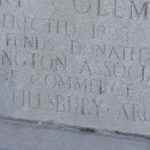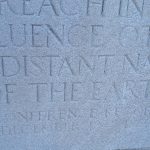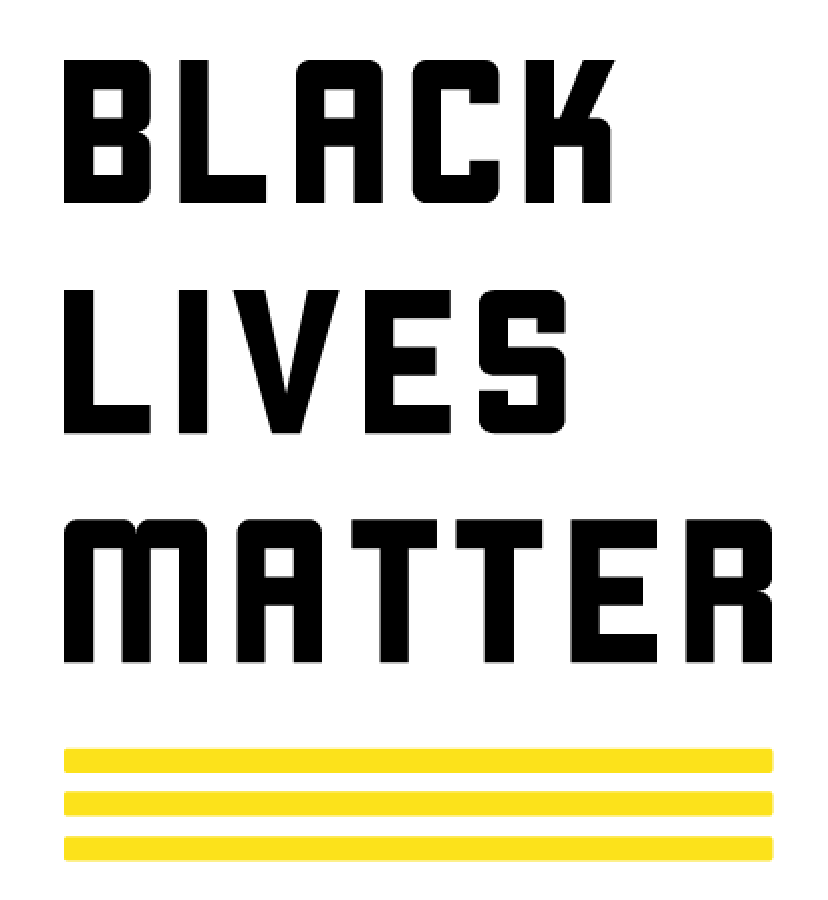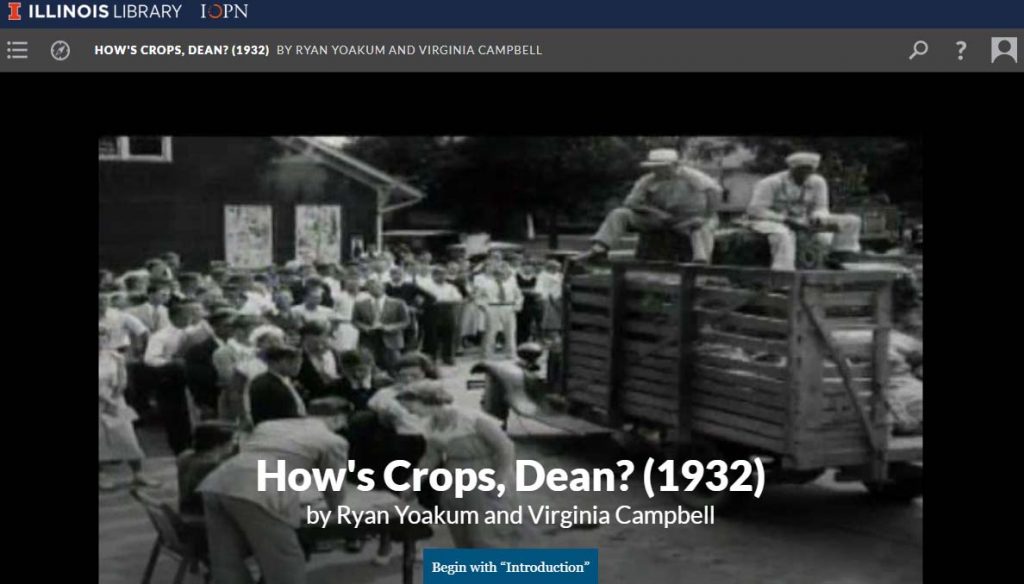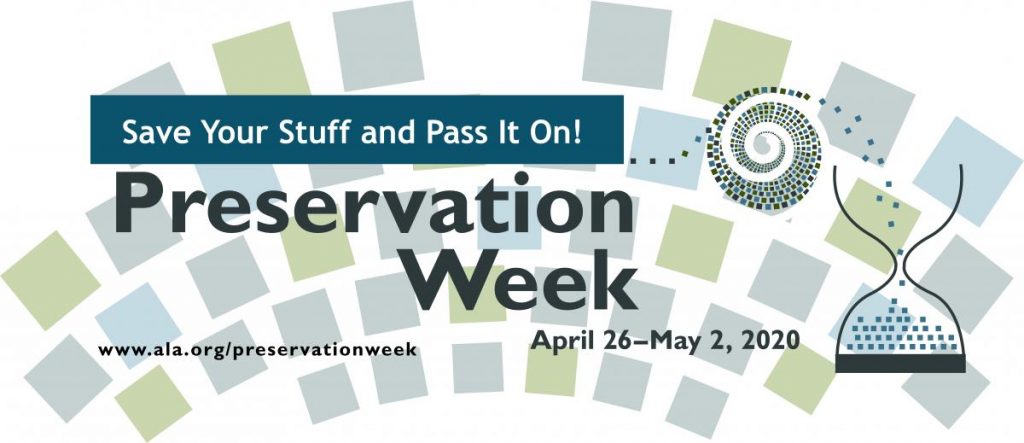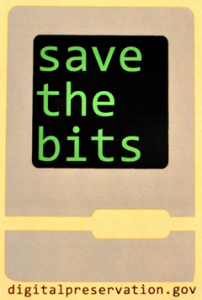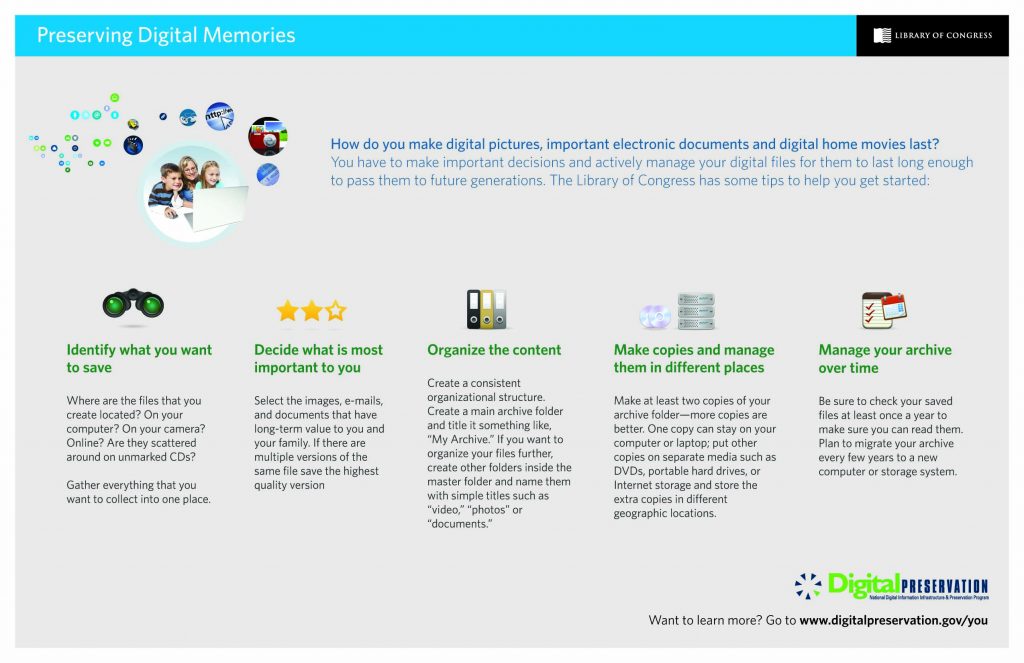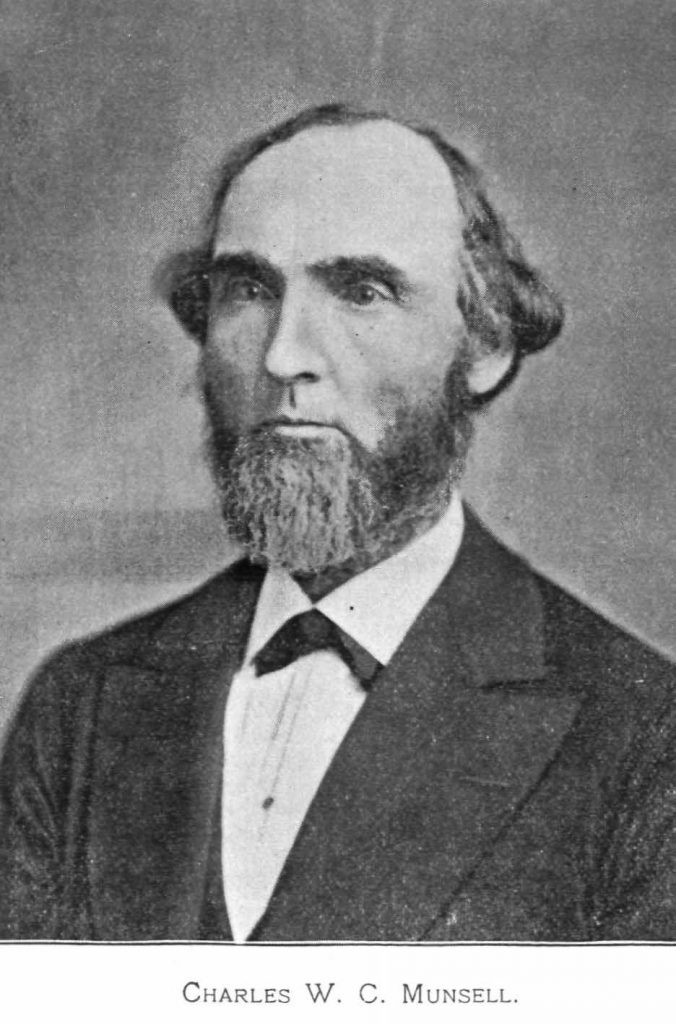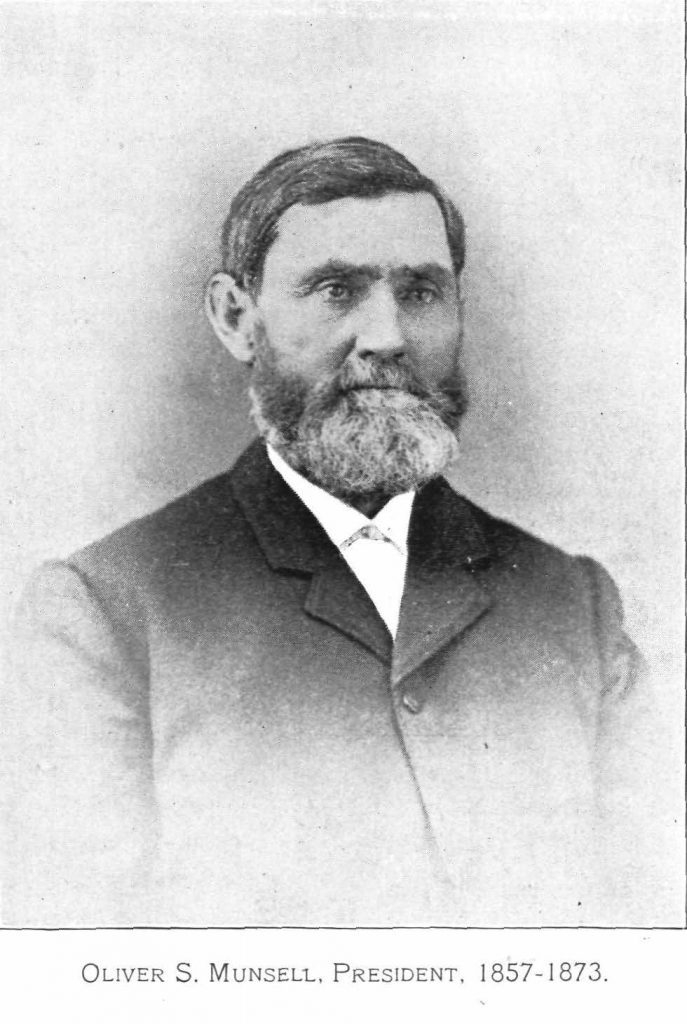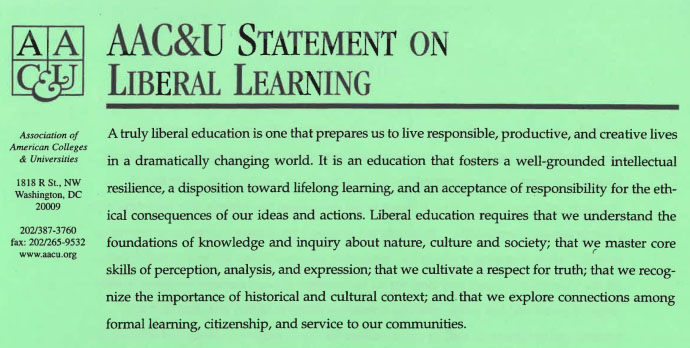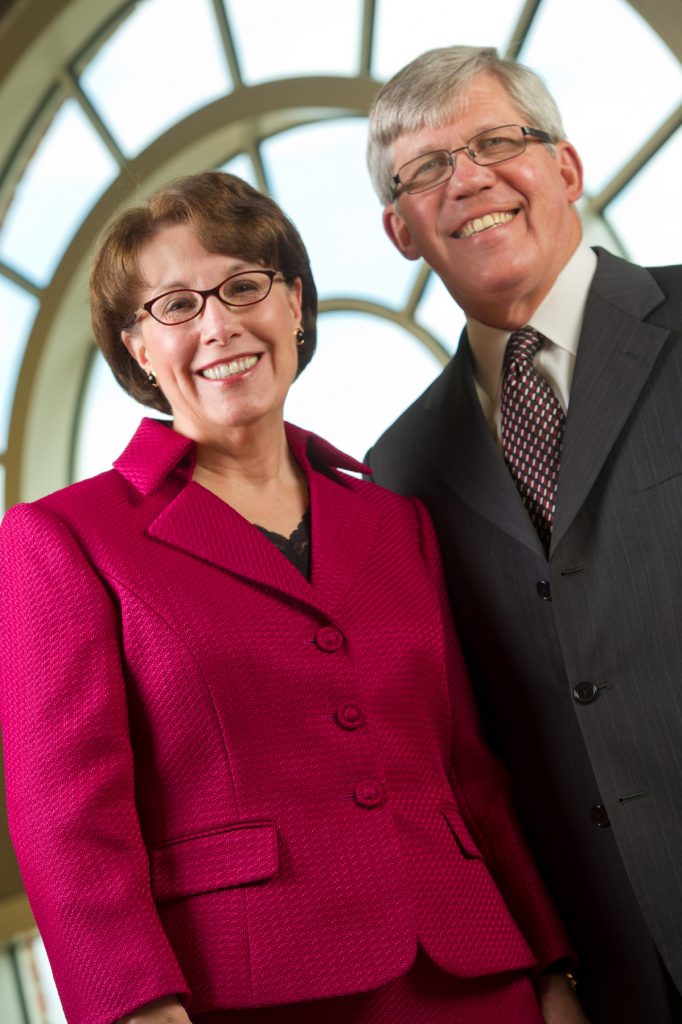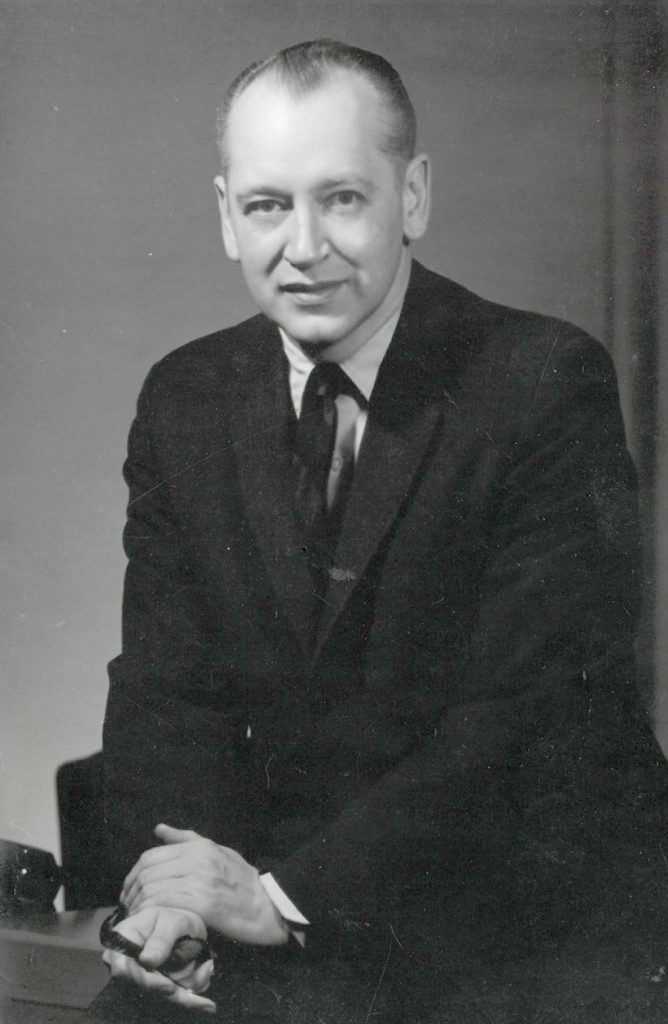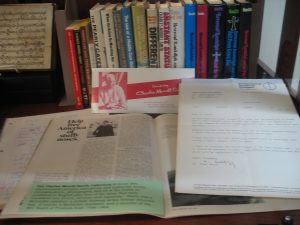Back in 2015, I asked one of the archives’ student assistants to research and write a blog post about the gate at the West entrance to IWU’s Quad that is known as the Founder’s Gate. The South pillar of the gate contains an excerpt from the Education Report, Journal and records of the … session of the Illinois Annual Conference of the Methodist Episcopal Church, 1854, p. 19. The report was submitted by the Chairman of the committee that year W. D. R. Trotter and J. L. Crane, Secretary. (A complete copy of the report I obtained from the Methodist Conference Archives is available on request.)
Architectural features are considered primary sources, but like any other source we can’t take the informaton they hold at face value. The gate that stands at IWU’s West entrance offers valuable lessons that illustrate how trustworthy (or not) primary sources are.
Mis-quoting & implied attribution: As the earlier blog post notes, the quote on the South column of the gate is an abbreviation of the quote in the actual Conference Record. Here is a copy of the complete quote:
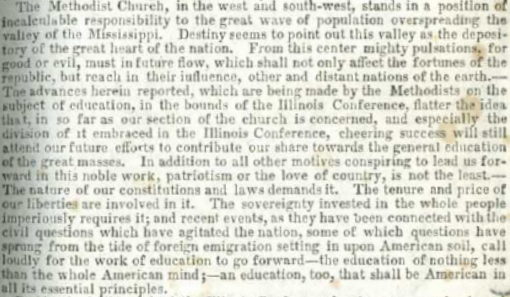
This is the text as it appears in the Education Committee Report in the 1854 Conference Record {click to enlarge]
By revising the first clause to read “We stand in a position…” rather than “The Methodist Church, in the west and south-west, stands…” and positioning it next to a column with a dedication to the Founders, the implication is that IWU’s Founders made this the statement as part of their reason for creating the University. Any evidence that they did so at all, let alone in 1850, has yet to surface. However, the chairman of the 1854 Education Committee, W.D.R. Trotter, was one of our Founders, so it might be attributed to him but he is not listed on the North column!
Mistaken transcription: The dedication plaque on the North column of the gate reads “In Memory of the Founders of Illinois Wesleyan University, 1850.”
It then lists the following names that, by implication, were all of the Founders: “James Allin, J.E. McClun, Linus Graves, Thomas P. Rogers, H.H. Fell, Ezekiel Thomas, W. H. Allin, Isaac Funk, John Moon, Jesse W. Fell, C.D. James, Silas Waters, C.P. Merriman, David Trimmer, John Magoun, James Miller, John W. Ewing, Jesse Birch, A. Goddard, W.C. Hobbs, David Davis, Peter Cartwright, John S. Barger, Henry Coleman.”
However there are some spelling errors in this list and some other names are missing. The author of a book published for IWU’s 100th anniversary, Elmo Scott Watson, provides a list of all the names and notes that some of the misspellings may have come from an inaccurate transcription in the 1895 history of IWU by William H. Wilder.
The reader can see the names and signatures in the 1850 document known as IWU’s “Birth Certificate” (aka, the Certificate of Incorporation). The 30 listed are:
“James C. Finley, James Miller, James Allin, John E. McClun, John Magoun, William C. Hobbs, Thomas Magee, Charles P. Merriman, Ezekiel Thomas, Thomas P. Rogers, Linus Graves, Peter Cartwright, James F. Jaquess, William J. Rutledge, Calvin W. Lewis, James Leaton, John Van Cleve, Silas Watters, Isaac Funk, David Trimmer, John S. Barger, C. M. Holliday, W. D. R. Trotter, W. H. Allin, William Wallace, W. H. Holmes, J. W. Ewing, Lewis Bunn, Kersey H. Fell, Reuben Andrus.”
Mistaken citation: Both columns contain attributions for the information on them:
- On the North we can see “Erected 1922 with Funds donated by the Bloomington Association of Commerce, Arthur L. Pillsbury, Architect”
- The day at the bottom of the South column is quite worn but an Argus article from February 13th, 1940 claims that it is “December 18th, 1850.” [n.b., The date on the “Birth Certificate” is December 3, 1850.]
- The Dedication Plaque on the North pillar of the gate shows that it was built in 1922 with funds donated by the Bloomington Association of Commerce and designed by Arthur Pillsbury
- The day is hard to read but the attribution at the end of the quote is “Conference Record December [??] 1850”
The date on the South column, especially when juxtaposed with the dedication to the Founders on the North column, could lead people to believe that the statement was made by IWU’s Founders in 1850. By checking the original sources, we established that the quote was incomplete and was actually published after a meeting of the Central Illinois Methodist Conference four years later.
It is also important to consider why the Bloomington Association of Commerce erected this Gate in 1922.* That was the year that IWU declined an offer by business interests in Springfield to relocate the University. (see descriptions of this plan on p. 104 the Myers/Teichman book on IWU history and pp. 152-54 of Watson’s.)
In their desire to honor IWU’s Founders, and perhaps as a sign of their belief in the importance of IWU’s presence in the community, the Bloomington Association of Commerce used an excerpt from this powerful sentiment in what IWU leaders often cite as an inspirational call to service (one example is in President Wilson’s February 8, 2006 remarks at Founders’ Day).
President Minor Myers, jr. relates the story of how he went to the Gate to copy the inscription, describes its presumed origins, and notes its addition to the new Ames Library’s Rotunda at the 2003 Founders’ Day Convocation.
Since it is an excerpt, it is appropriate to attribute any use of the abbreviated quote to the Gate and not the Conference Record.
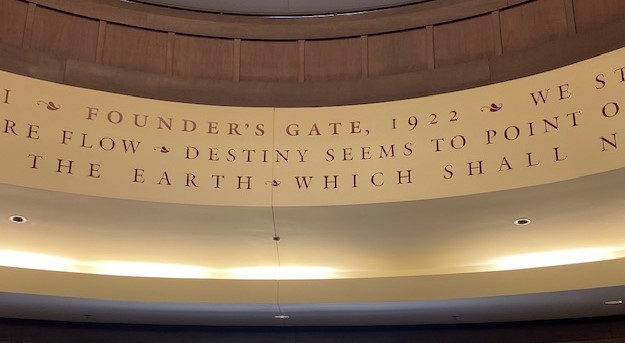
The quote from the Gate is also available in The Ames Library’s Jown Wesley Powell Rotunda, where it serves as a reminder to all in the IWU community of their purpose.
*For more on the topic of examining the purpose behind monuments, I often recommend the book Lies Across America: What Our Historic Sites Got Wrong (1999) by James W. Loewen.

